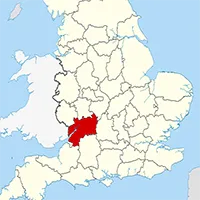-
Place of Birth
Ohio
-
SURNAME HERITAGE
England Ireland Scotland

Hale History, Family Crest & Coats of Arms
The name Hale is an old Anglo-Saxon name. It comes from when a family lived in a remote valley, or nook. Checking further we found the name was derived from the Old English halh, which had the same meaning. Conversely the name could have been a nickname for someone who was “healthy, stout, a brave man, chief, or hero” having derived from the Anglo-Saxon word “hale.” 1
Early Origins of the Hale family
The surname Hale was first found in Cheshire, but there are other records of this local name throughout England. Parish named Hales were found in Stafford, Norfolk and Worcester. Norfolk’s earliest reference was Alexander de Hales, who was listed there in 1245. 2
The Hundredorum Rolls of 1273 lists: Richard de la Hale in Oxfordshire; and Walter en le Hale in Sussex at that time. Robert in the Hale was listed in the Close Roll, temp. 2 Edward I and according to Kirby’s Quest, John atte Hale was listed in Somerset, temp. 1 Edward III 3 4
Alexander of Hales (d. 1245), the celebrated theologian, and one of the first of the Christian Philosophers of the thirteenth century, was born in Gloucestershire at a town or village called Hales. 5
Thomas Hales (fl. 1250), was an early English poet and religious writer, was a Franciscan friar, and presumably a native of Hales (or Hailes) in Gloucestershire. 5
The name quickly became native to Scotland as seen by Michel de Hale del counte de Edeneberk who rendered homage to King Edward I in his brief conquest of Scotland in 1296. 6
Later some of the family were found at Kings Walden in Hertfordshire. “On the north side of the chancel of the church is a chapel, the burial-place of the Hale family, erected by William Hale, who died in 1648.” 7
Hailes Castle is a 14th century castle about a mile and a half south west of East Linton, East Lothian, Scotland. It dates back to c. 1300. Hailes Abbey near Winchcombe in Gloucestershire

 Located in the South West of England, Gloucestershire comprises part of the Cotswold Hills, River Severn and the entire Forest of Dean. Bordered by Herefordshire, Worcestershire, Warwickshire, Oxfordshire, and Wiltshire, Bristol and Somerset as well as the Welsh county of Monmouthshire. Mentioned in the Anglo-Saxon Chronicle in the 10th century, when it originally included Bristol, which became its own county in 1373 due to a large population growth. Located in the South West of England, Gloucestershire comprises part of the Cotswold Hills, River Severn and the entire Forest of Dean. Bordered by Herefordshire, Worcestershire, Warwickshire, Oxfordshire, and Wiltshire, Bristol and Somerset as well as the Welsh county of Monmouthshire. Mentioned in the Anglo-Saxon Chronicle in the 10th century, when it originally included Bristol, which became its own county in 1373 due to a large population growth. |
http://en.wikipedia.org/wiki/Gloucestershire was built in 1245 or 1246 but little remains of the abbey today.


